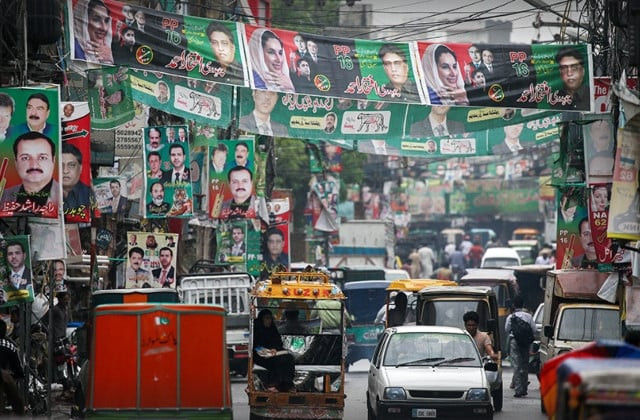Parties vie to retain mandate as election campaign ends
Trend in Pakistan’s electoral history is emergence of new political parties before each election

As the campaign for the General Election 2024 ended end at Tuesday midnight, the major concern of the leading politi-cal parties was to retain their mandate, while some new entrants were pushing to gain foothold in the metropolis.
Reviewing past elections reveals that the mandate in Karachi has shifted among different parties. An interesting trend in Pakistan’s electoral history is the emergence of new political parties before each election, which often dominate the electoral landscape.
In the 2002 general elections, the Pakistan Muslim League-Q entered the electoral arena for the first time and emerged as the largest party with 118 seats nationwide. In Karachi, PPP secured two seats, Jamaat-e-Islami four seats, JUI one seat from MMA platform, and MQM won 16 National Assembly seats.
Read Election campaign culminates today
Moving to the 2008 elections, PPP won five provincial and three National Assembly seats from Karachi, while MQM secured 17 National Assembly seats and 34 general Sindh Assembly seats. Awami National Party also won two provin-cial seats.
In the 2013 general elections, Pakistan Tehreek-e-Insaf won one national and three provincial seats for the first time from Karachi, while Pakistan Muslim League-Nawaz secured one national and two provincial seats. MQM won 17 Na-tional Assembly and 32 Provincial Assembly seats, and PPP won one national and five provincial seats from Karachi.
The 2018 general elections marked a significant shift in Pakistan’s electoral history, with PTI securing an extraordinary victory. Despite starting electoral politics, PSP failed to win any seats. PTI surprised everyone by winning 14 National Assembly seats in Karachi, while PPP won three national and seven provincial seats.
Published in The Express Tribune, February 7th 2024.



















COMMENTS
Comments are moderated and generally will be posted if they are on-topic and not abusive.
For more information, please see our Comments FAQ